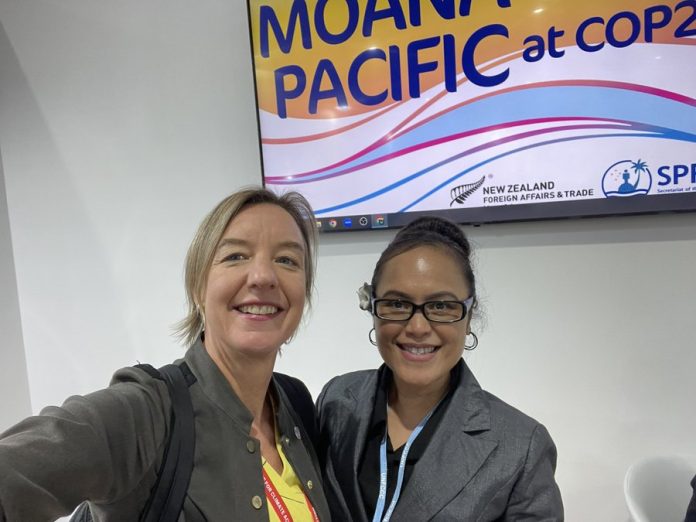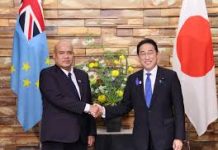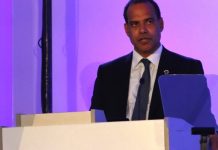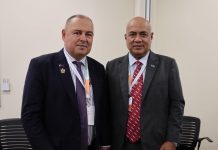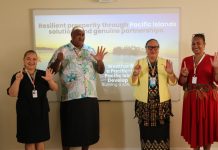By Pita Ligaiula at COP28 in Dubai, UAE
As COP28 nears conclusion, former Palau Ambassador and Permanent Representative to the United Nations, Olai Uludong, stresses the importance of returning to the original purpose of mitigating greenhouse gas emissions on Monday.”
“We must not forget that originally this convention was created on the premise to mitigate greenhouse gas. While there are many actors here, there’s equally more pavilion, more side events that I’ve never seen since I’ve started. On one side, maybe it’s a good thing everybody is here. On the other hand, the worry is that there can be a lot of distraction from the original intention of what we need to achieve,” said Uludong.
Expressing concerns about potential distractions, Uludong observed an influx of Pacific delegations and emphasised the importance of relevance in addressing the climate crisis.
“As small developing countries, in order to be relevant in the game, you cannot just come here. You do have to come here, but I always encourage when you do come here, be relevant and keep to that mandate.”
“So, I found it interesting that I’ve seen so many Pacific delegations, some coming in with over a hundred, which is more than any Pacific group that’s coming,” she said.
Uludong urged small developing countries to be pragmatic and stay true to their mandate.
“Now we finish with the technical bit; this is a political game where we start being realistic, being pragmatic on where we are going right now. So, on Sunday, the COP president convened the Majilis,” she said in a media briefing in Dubai
Uludong explained the significance of the Majilis, an assembly of traditional elders in Arab tradition, called by the COP president.
“When Fiji was the COP23 President and they called the Talanoa, it meant that there were issues that needed to be addressed, and you cannot do it at the technical level. Now we need the relevant political players to be in the room to have an honest conversation beyond the technical, about the pragmatic politics being played, the reality, and so we saw that,” she said.
She highlighted its role in addressing issues that require a political push focusing on mitigation ambition and action.
“Once you see the host convening this kind of gathering at the tail end, it means that the issues that can never be solved now need political push.
“The heart of the convention and the protocol before the Paris Agreement was really on mitigation. Right now, the biggest issue that needs to be ironed out that is holding the hostage against each other is really about mitigation ambition and action, but overall the heart of it is the economics; this is about finance,” said Uludong.
Acknowledging the COP president’s agreement on Loss and Damage on the first day, Uludong expressed hope for addressing mitigation challenges and the economic aspects of climate action.
“The Majilis has to, like a word added to it, and he called it we need to be the change-maker to unite and act and deliver. I have hope. I’ve been in the process for a long time, and this is a party-driven process. We all have to agree to disagree,” she said.
Optimistic about the host’s efforts, Uludong recognised challenges faced by oil-based economies and Ocean economies like Palau and the need for a collective landing point.
“As for SIDS, when we come to these spaces, we equally have to carry our own weight because we not only want the global world to mitigate because we’re feeling the impact. If we mitigate now, we adapt later. We’re already adapting. I’m optimistic that the host is really trying. They do have their challenges.
Uludong emphasised the progress on Loss and Damage and the ongoing efforts to secure the necessary finance to address climate challenges.
She highlighted the pressing issue of mitigating global warming below 1.5 degrees and expressed hope for a comprehensive agreement.
“Now we have the biggest elephant in the room, which is the heart of the Paris Agreement, which is the mitigation well below 1.5 and not overshoot 2 degrees, and hopefully, we can have a package we can agree on,” she said.
SOURCE: PACNEWS.






